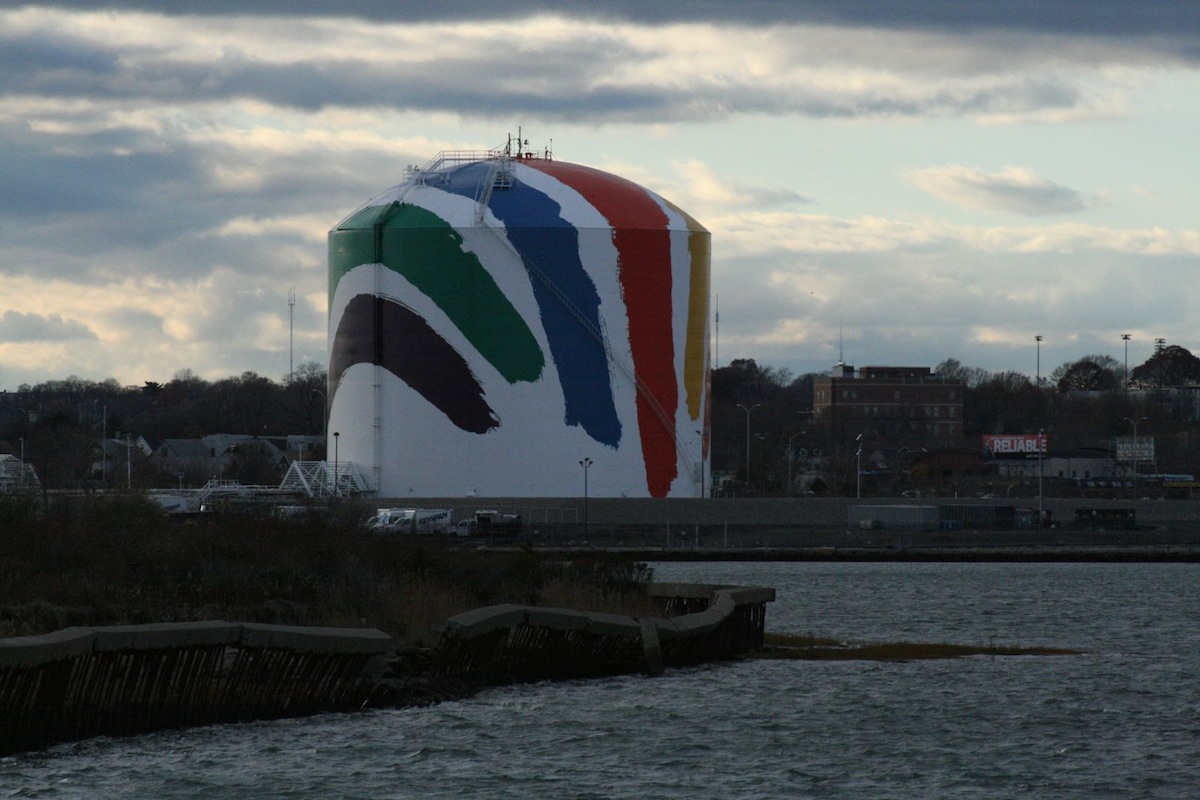ACLU Files Lawsuit After Feds Eye Photographer’s ‘Suspicious’ Behavior
The American Civil Liberties Union is challenging federal officials in court after an 86-year-old professional photographer landed in a terrorism investigation database for trying to snap photos of Dorchester’s historic multi-colored gas storage tank.
In a lawsuit against the government’s “Suspicious Activity Report Program,” a joint collaborative effort between the U.S. Department of Homeland Security, the FBI, and state and local authorities, the ACLU claims that in 2004, James Prigoff, who was 76 at the time, was scrutinized by investigators after visiting Boston and attempting to take pictures of the “Rainbow Swash” artwork that marks the large tank that can be seen from the highways.
As Prigoff, a professional photographer, allegedly had his camera at the ready while outside of the property, he was approached by security guards and told to leave the area. Later, when he returned home to California, agents from the Joint Terrorism Task Force came to his house and left a card on his door, asking the photographer to call them immediately.
“I have never had an experience like I had when attempting to photograph the ‘Rainbow Swash,’” Prigoff said in a statement. “When I called [the agent], he asked if I had been in Boston recently. At that moment I realized that the security guards at the Rainbow Swash site must have taken down the rental car license plate number and reported me to a law enforcement agency. I never gave the guards any information about myself, so I must have been traced across country via my rental car record.”
The SAR program’s purpose is to allow different departments to work together to help prevent terrorism and other related criminal activity by establishing a national database for gathering, documenting, processing, and analyzing information, according to the Nationwide SAR Initiative’s website.
But the ACLU claims the governmental agencies stepped their bounds, and employed tactics that should be reserved for actual terrorist activity and public threats, not for tracking down and following innocent citizens, who were abiding by the law, across the country. “A professional photographer taking a photo of a well-known Boston landmark is now considered to be engaged in suspicious terrorist activity?,” said Prigoff. “There is no reason for it. This program must be stopped.”
The lawsuit was filed in conjunction with several other civil rights groups, including the national chapter of the ACLU. It was filed on behalf of five people in total—including Prigoff— who were allegedly subject to federal investigations due to “suspicious activity.”
“This domestic surveillance program wrongly targets First Amendment-protected activities, encourages racial and religious profiling, and violates federal law,” said Linda Lye, staff attorney with the ACLU of Northern California in a statement. “The Justice Department’s own rules say that there should be reasonable suspicion before creating a record on someone, but the government’s instructions to local police are that they should write up SARs even if there’s no valid reason to suspect a person of doing anything wrong.”
The ACLU said the SAR Program violates federal privacy laws that are in place to protect citizens. The lawsuit challenges the government’s standards for suspicious activity reporting as arbitrary and illegal.


